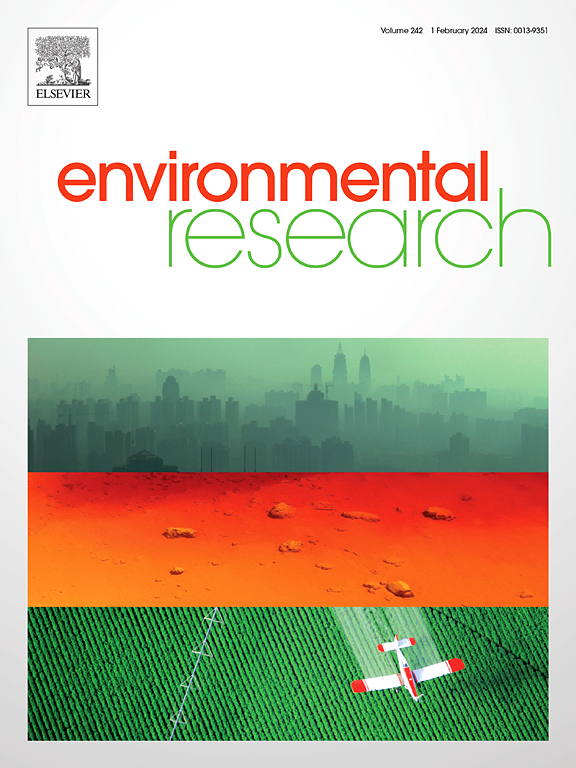Effect of microplastics on antibiotic resistome risk in composting
IF 7.7
2区 环境科学与生态学
Q1 ENVIRONMENTAL SCIENCES
引用次数: 0
Abstract
Microplastics are a growing concern worldwide because of their impact on the environment and human health. Composting is an effective method for managing antibiotic resistome risk in organic waste, yet the effects of microplastics on antibiotic resistome risk in composting are not well understood. In this study of laying hen manure, the microplastic polypropylene increased the temperature of the compost but did not significantly affect the total composition, abundance and risk score of antibiotic resistance genes (ARGs) during composting. The dominant phyla on microplastics and manure were Actinobacteria, Firmicutes and Proteobacteria. Escherichia (bin.70), Oceanobacillus (bin.85) and Mycobacterium (bin.79) were the main ARG hosts. Among them, the abundance of the ARG host Mycobacterium (bin.79) was significantly higher in microplastics than in manure. Furthermore, ARG transfer occurred between the ARG host Mycobacterium (bin.79) and other microorganisms on microplastics and manure. These findings indicate that while microplastics may not strongly affect the overall antibiotic resistome risk during composting, they increase the likelihood of horizontal gene transfer in specific ARG hosts. This underscores the critical need to control both microplastic and resistance contamination.
微塑料对堆肥中抗生素抗性风险的影响
微塑料因其对环境和人类健康的影响而日益受到全世界的关注。堆肥是控制有机废物中抗生素抗性组风险的有效方法,但微塑料对堆肥中抗生素抗性组风险的影响尚不清楚。在本试验中,微塑聚丙烯提高了鸡粪堆肥的温度,但对堆肥过程中抗生素抗性基因(ARGs)的总组成、丰度和风险评分没有显著影响。微塑料和粪便的优势菌门为放线菌门、厚壁菌门和变形菌门。大肠杆菌(bin.70)、海洋杆菌(bin.85)和分枝杆菌(bin.79)是ARG的主要宿主。其中,微塑料中ARG宿主分枝杆菌(bin.79)的丰度显著高于粪便。此外,ARG转移发生在ARG宿主分枝杆菌(bin.79)和微塑料和粪便上的其他微生物之间。这些发现表明,虽然微塑料在堆肥过程中可能不会强烈影响整体抗生素抵抗组风险,但它们增加了特定ARG宿主水平基因转移的可能性。这强调了控制微塑料和抗性污染的迫切需要。
本文章由计算机程序翻译,如有差异,请以英文原文为准。
求助全文
约1分钟内获得全文
求助全文
来源期刊

Environmental Research
环境科学-公共卫生、环境卫生与职业卫生
CiteScore
12.60
自引率
8.40%
发文量
2480
审稿时长
4.7 months
期刊介绍:
The Environmental Research journal presents a broad range of interdisciplinary research, focused on addressing worldwide environmental concerns and featuring innovative findings. Our publication strives to explore relevant anthropogenic issues across various environmental sectors, showcasing practical applications in real-life settings.
 求助内容:
求助内容: 应助结果提醒方式:
应助结果提醒方式:


